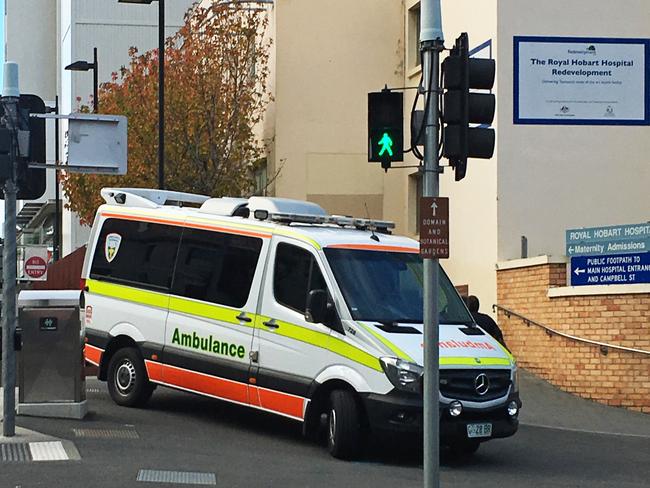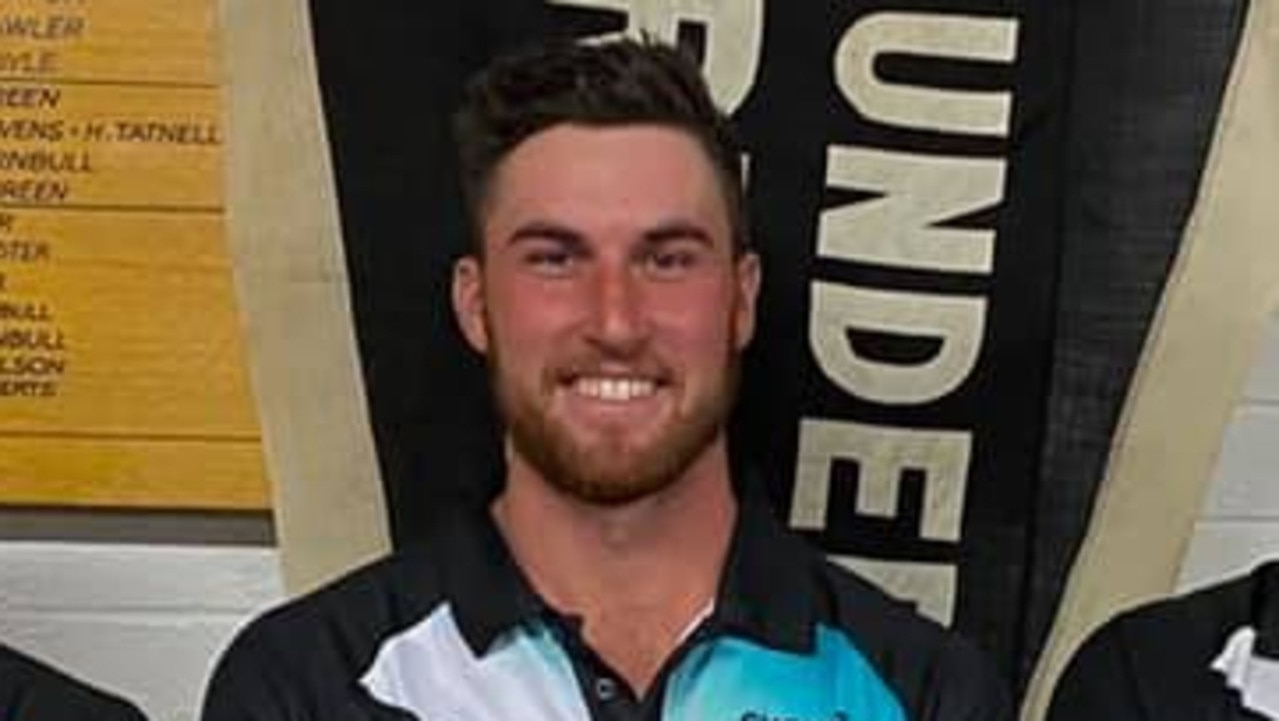Second case of meningococcal at the Royal Hobart Hospital increases pressure for access to vaccines
ANOTHER young Tasmanian has been struck down with meningococcal disease, with Royal Hobart Hospital officials confirming they are treating a 20-year-old man.

News
Don't miss out on the headlines from News. Followed categories will be added to My News.
PRESSURE is mounting on the State Government to increase availability of vaccinations against meningococcal disease as a second case is confirmed.
Health officials said yesterday a 20-year-old man had been admitted to the Royal Hobart Hospital with the infection. His case follows the death last week of a 16-year-old Hobart girl from the killer bacterium.
Deputy director of Population Health Services Scott McKeown said a public health response had begun following the second case.
The president of the Royal Australian College of General Practitioners, Huon Valley GP Bastian Seidel, says vaccination is the best way to protect against the deadly disease.
Dr Seidel told the Mercury yesterday more support was needed to help vulnerable Tasmanians who could not afford the $100-plus cost of the vaccine for the B strain of the disease.
Labor’s health spokeswoman Sarah Lovell said measures to make meningococcal vaccinations more affordable should be looked into.

In a statement last night, Public Health director Mark Veitch said: “Following a significant increase in meningococcal W disease in Tasmania last year, the State Government initiated a vaccination program targeting a cohort of 15-19 year olds.
“This age group was targeted based on international evidence that this particular age group has higher rates of infection and carriage. Our approach was in line with other Australian States’ approaches to meningococcal W.”
Dr Veitch said the Tasmanian program used meningococcal ACWY vaccine which was delivered through schools, councils and GPs, and was heavily promoted, including on social media. Vaccine for teenagers born between 1 August 1997 and 30 April 2003 remains available through GPs.
“Infants now receive a free meningococcal vaccination against meningococcal ACWY at age 12 months through the National Immunisation Program,” Dr Veitch said.
“On average, Tasmania experiences around five cases of meningococcal disease a year. There have been two cases this year.
“Population Health Services’ current focus is ensuring robust follow-up and management of people who have been in contact with either of the two cases to ensure the risk of a secondary infection is minimised, and all contacts are aware of the symptoms of meningococcal disease.
“Population Health Services reviews and analyses disease epidemiology in Tasmania in order to assess preventative policy.”
EARLIER: ANOTHER young Tasmanian has been struck down with the deadly meningococcal disease.
Health officials have confirmed a 20-year-old man had been admitted to the Royal Hobart Hospital with the disease.
His case follows the death last week of a 16-year-old Hobart girl due to meningococcal.
Deputy Director of Population Health Services Scott McKeown said a public health response had begun following the confirmation of what is now Tasmania’s second confirmed case this year.
The young man’s close contacts were informed last night and antibiotics were administered.
“This will continue today, with social and work contacts being issued with information about meningococcal disease,” Dr McKeown said.
“We do not believe this case is linked to that of a 16 year-old who sadly died last week with meningococcal disease.
“This is the second case of meningococcal disease to occur in Tasmania this year.”
Typically, there is an average of four or five cases in the state every year. Last year, however, there were 16 cases, one of which was fatal.
Early symptoms of meningococcal can include fever, severe muscle aches and pains, headache, feeling unusually unwell, confused or drowsy. Late in the illness a rash may occur.
“A person with meningococcal disease can deteriorate rapidly. If you suspect meningococcal disease, seek emergency medical treatment immediately,” Dr McKeown said.
Tasmanian teenagers born between 1 August 1997 and 30 April 2003 remain eligible, and are encouraged, to receive a state-funded meningococcal vaccine through their general practitioner.
This vaccine provides protection against the strains A, C, W, and Y.
The president of the Royal Australian College of General Practitioners, Huon Valley GP Bastian Seidel, said vaccination was the best way to protect against the deadly disease.
Dr Seidel said patients with meningococcal deteriorated so quickly it was extremely difficult to treat.
“It’s devastating … quite frankly the only thing we can do is to vaccinate,” he said.
He praised government efforts to roll out free vaccines to targeted age groups, but said more was needed to help vulnerable Tasmanians who could not afford the $100-plus cost of the vaccine.
Dr Seidel said parents started coming into his practice last Friday, after the death of the teenager, saying they wanted their children vaccinated.
“Parents were coming in saying they are concerned, but when I explain the cost, some people can’t afford it,” he said.


